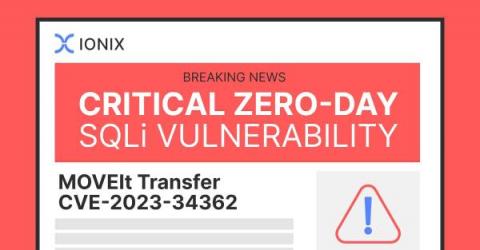CVE-2023-34362: SQLi Zero Day Vulnerability in MOVEit Transfer exploited in the wild
CVE-2023-34362 is an SQL injection (SQLi) vulnerability that has been found in the MOVEit Transfer web application that could allow an unauthenticated attacker to gain unauthorized access to MOVEit Transfer’s database. SQL Injection (SQLi) poses significant risks as it allows attackers to potentially steal, manipulate, or delete sensitive data from databases.











